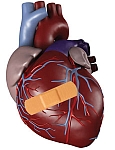
UCLA performs first transcatheter aortic valve replacement
Singapore: The University of California, Los Angeles (UCLA) performed its first transcatheter aortic valve replacement (TAVR), using a new device approved by the US FDA, to replace an aortic valve in a patient who was not a candidate for open-heart surgery. The surgery was conducted by the Ronald Reagan UCLA medical center.
Although minimally invasive surgical procedures have been used on the aortic valve in the past, these operations relied on incisions in the chest wall and required cardiopulmonary bypass. TAVR allows doctors for the first time to replace the aortic valve without either of these components of conventional surgery.
The aortic valve's leaflets act as sentries to help blood flow from the heart into the aorta while preventing blood from leaking backward into the heart. When the leaflets aren't doing their job properly due to aortic stenosis, the heart needs to generate higher pressure to push the blood through the valve into the aorta. Patients with aortic stenosis have a number of symptoms, including chest pressure or angina, shortness of breath, edema, and fainting.
Many patients are not good candidates for conventional valve replacement because they suffer from a number of other health issues, and it is estimated that 40 percent of patients do not undergo aortic valve replacement because they are considered inoperable. The new device is deployed through a catheter,which is a long tube that is advanced through an artery in the groin up to the heart. Once in place, a balloon at the end of the catheter is inflated, opening the new valve, which starts working instantly.
Dr Jonathan Tobis, director, interventional cardiology, David Geffen School of Medicine, UCLA and the UCLA Health System, said that, "The new valve procedure offers hope to patients who previously had few options. The initial roll-out will include patients who are not candidates for open surgery. The FDA is considering this procedure for high-risk patients who are also surgical candidates, so we look forward to offering TAVR to even more patients in the near future."




